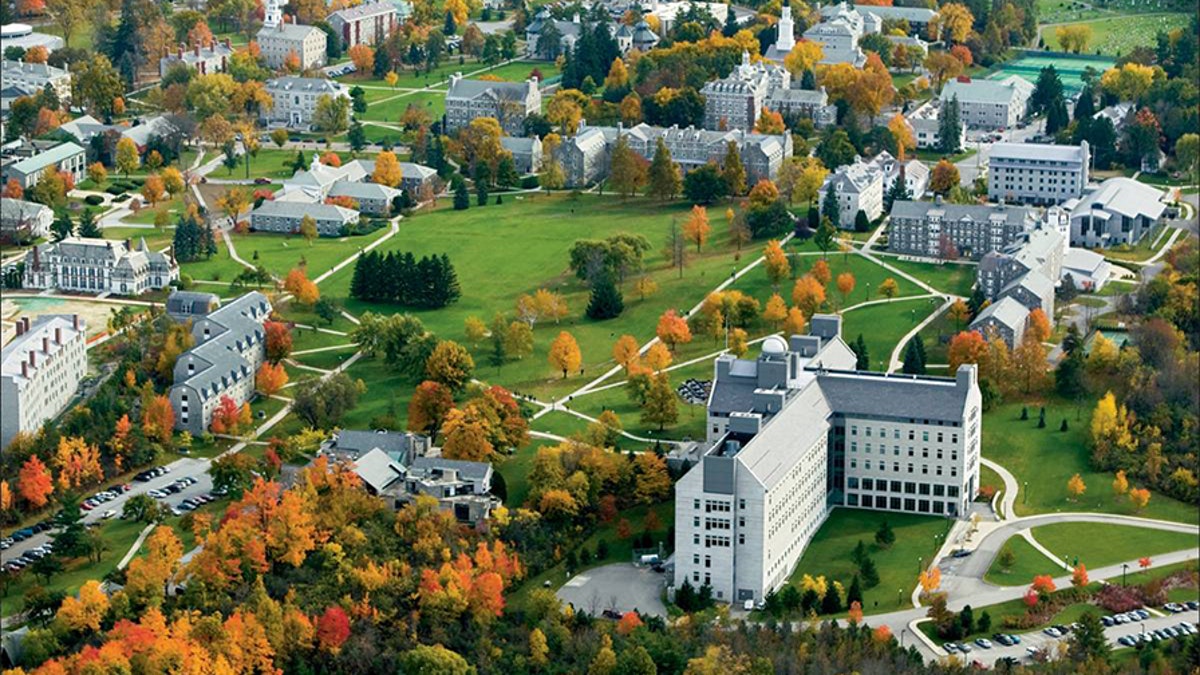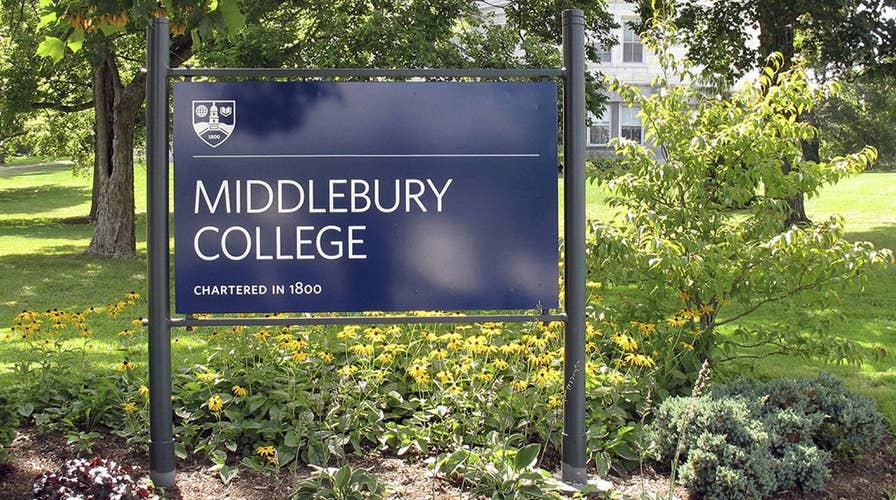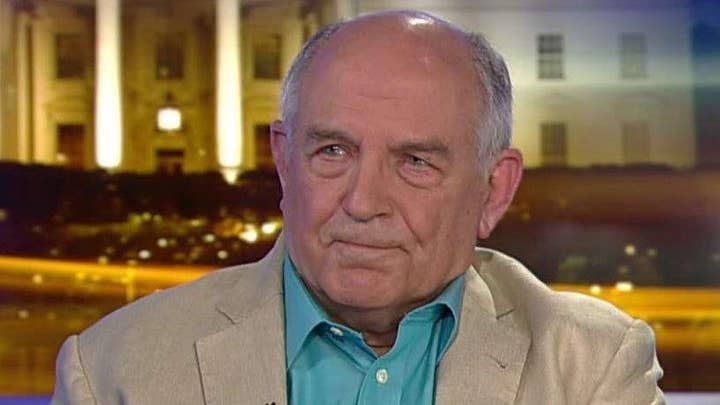Vermont's Middlebury College cancels lecture by conservative speaker
Middlebury College graduate and incoming Harvard Law student Alexander Khan speaks out against the move.
Two years ago, I invited AEI scholar Dr. Charles Murray to speak at Middlebury College in Vermont. As is now well-known, the moderator of the event was injured after a riot broke out when she and Murray left the lecture hall.
While I was shocked by what had happened, I was proud of what I had done in inviting Dr. Murray and how the administration had acted to ensure that he could speak.
This past week, the pride I once had in my college dissolved entirely after the administration refused to secure a lecture by another controversial speaker.
CHARLES MURRAY: 'INTO THE MOB' -- WHAT HAPPENED WHEN I TRIED TO SPEAK AT MIDDLEBURY
Last Wednesday, Ryszard Legutko, a Polish philosopher and member of the European Parliament, was scheduled to speak at the invitation of Middlebury’s Alexander Hamilton Forum. Legutko, a well-known scholar of classical political philosophy who formerly served as both Minister of Education and Secretary of State in Poland, had planned to lecture on the subject of totalitarianism.
The day he was to speak, students and alumni were informed that the administration had canceled his talk. There is only one word for this act of fear and cowardice: shameful.
The Legutko cancelation represents the culmination of an anti-free speech agenda which was implemented in the wake of the Murray incident. In an attempt to recover the reputation of the school after the Murray event riot, the administration instituted a new speaker policy which included a provision that the administration would consider canceling an event if it posed a “credible threat to the community.”
Not long after writing an op-ed in the Wall Street Journal expressing her commitment to embracing “freedom of expression and inquiry as an educational value for everyone,” President Laurie Patton turned around and instituted what was essentially a heckler’s veto. The only thing the administration seemed concerned with was sweeping the incident under the rug. While the policy has since been slightly altered, it was a sign of things to come.
After implementing the interim policy, the administration did nothing to encourage heterodox thinkers to come to campus or to punish, in any meaningful way, the students and faculty who organized the protest-turned-riot.
Their only discernible response was to hire a number of “diversity officers” who do little besides affirming students’ sense of victimhood. When other braver students tried to start on-campus organizations dedicated to diversity of thought, the administration did everything in its power to block their efforts.
These actions have only served to embolden those who want to shut down speakers and maintain the status quo. These decisions reached their climax in the lead up to the lecture.
What has occurred this past week at Middlebury College is far worse than anything that happened during the Murray incident.
Then, less than 24 hours before the lecture was scheduled to begin, the administration announced it would be moved to a remote location.
The first people they told of this location change were not the event organizers or the broader community, but the would-be protestors. Hours later, ostensibly out of fear for students’ safety, they canceled the event.
The administration could have tried to address the concerns surrounding the event earlier. Instead, they chose to do nothing to ensure the lecture could take place. This time, when those committed to open inquiry and robust discourse attempted to bring someone from outside of the mainstream of campus thought, the Middlebury mob went to work and the administration instantly caved.
What has occurred this past week at Middlebury College is far worse than anything that happened during the Murray incident.
Except for those professors who are still committed to providing their students with a true liberal arts education, it seems that Middlebury has given up on its values. It no longer is willing to fight for what it claims to believe.
The only explanation for these actions is that the administration is solely focused on donations, and they are afraid of anything that might threaten them. Their fear is not of protestors or potential riots; it is of their own stated principles. They fear freedom of speech with all it entails. They fear open inquiry and the questions it forces people to explore. Most of all, they fear liberal arts education and everything that is required to engage in it.
At colleges and universities across the country, it needs to be stated loudly that the university is not a place of “intellectual safety.” Administrators and professors must inform their students that there is no question or issue that is not up for debate or discussion, and that there is no “violence” in these processes which are necessary to knowledge.
While discussion is difficult, it is necessary for growth. Only through honest, academic, peaceful, yet rigorous debate can we hope to create a generation of people who can rightly be called citizens. Freedom of thought, speech, and full, unfettered expression are necessary if we are to be worthy of our liberty.

(Middlebury College)
We, too, must begin to look into the fundamental causes of our inability to engage with opposing ideas. It is our responsibility to understand the source of our animosity towards those we do not agree with, and more importantly, our animosity towards those whom we have never read or listened to.
For those committed to living in a society based in liberty and freedom of expression, to studying on campuses where true inquiry and learning take place, to engaging in a political life that encourages robust and open debate and the clash of ideas, we have a duty to begin the hard work of reestablishing the values of free speech and discourse that we hold so dear.
CLICK HERE TO GET THE FOX NEWS APP
We must embrace the free and open competition of ideas; we must engage with our fellow citizens; and we must, above all else, challenge our students in their beliefs, and force them to contend with contrary opinions.
Although there were no riots, no mobs, and no protests this past week at Middlebury, something far more deadly occurred. Ryszard Legutko was not shut down, he was not even given the opportunity to speak.










































